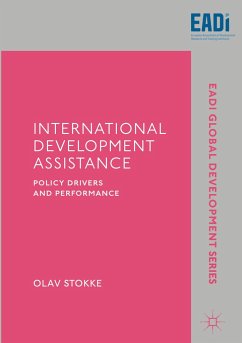
Cooperation and Protracted Conflict in International Affairs
Cycles of Reciprocity
Versandkostenfrei!
Versandfertig in 6-10 Tagen
42,99 €
inkl. MwSt.
Weitere Ausgaben:

PAYBACK Punkte
21 °P sammeln!
This book addresses two main questions: under what conditions does reciprocity fail to produce cooperation?; and when do reciprocal dynamics lead to negative, instead of positive, cycles? Answering these questions is important for both scholars and practitioners of international negotiations and politics. The main argument of this project is that positive tit-for-tat (TFT) and negative reciprocal cycles are two possible outcomes originating from the same basic process of reciprocity. It is important to acknowledge both possibilities and understand when a situation is going to develop into one ...
This book addresses two main questions: under what conditions does reciprocity fail to produce cooperation?; and when do reciprocal dynamics lead to negative, instead of positive, cycles? Answering these questions is important for both scholars and practitioners of international negotiations and politics. The main argument of this project is that positive tit-for-tat (TFT) and negative reciprocal cycles are two possible outcomes originating from the same basic process of reciprocity. It is important to acknowledge both possibilities and understand when a situation is going to develop into one or the other outcome. The study then calls for a broader discussion of reciprocity in international relations (IR). Specifically, IR should include the negative and more problematic side of reciprocity. To exemplify this, the book provides a detailed analysis of two case studies: border and maritime disputes between China and Vietnam; and Mexico and Guatemala.












